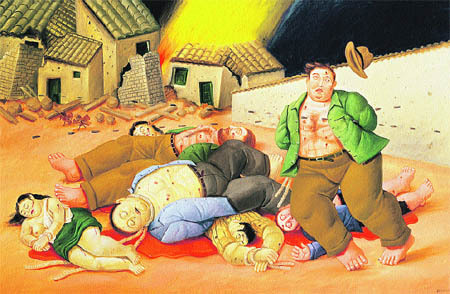Yesterday Mexican authorities due to a lack of evidence released the man suspected of Will’s death. Juan Manuel Martinez- a protestor and member of the Popular Assembly of Oaxaca Peoples (APPO)- claimed that he was a “political prisoner” after having spent sixteen months behind bars. Moreover, human rights groups and Will’s family have argued that Martinez was innocent and a scapegoat. “This was a distraction,” said Will’s mother to the New York Times while Reporters Without Borders accused authorities of framing Martinez:
The Will family lawyer, Miguel Ángel de los Santos, told Reporters Without Borders: “We are now waiting for the investigation to resume, but this time in an objective manner.” De los Santos never thought Martínez had anything to do with Will’s murder and nor did Reporters Without Borders. Martínez was scapegoat. To protect the governor’s bodyguards, the Oaxaca authorities used the local judicial authorities to try to pin the murder on the APPO.The Oaxaca attorney general’s office has yet to bring charges against officials or police possibly involved in the death of Will. Last year, the Mexican Supreme Court in a non-binding ruling signaled Martinez as the lone gunman.
This episode has highlighted the incompetence or complicity of both the local and federal authorities at a time when press freedom is seriously threatened in Mexico, now the hemisphere’s most dangerous country for journalists. A recent study by Article 19 and the National Centre for Social Communication (Cencos), a Mexican NGO, blamed 65 per cent of the attacks on the press on the authorities, and only 6.15 per cent on organised crime.
In the end the question still remains over who killed Bradley Will? One clue could be found via the Not Safe For Work video shot by Will as he was killed. Judge for yourself:
Online Sources- Reporters Without Borders, LAHT, YouTube, Canadian Press, The Latin Americanist














